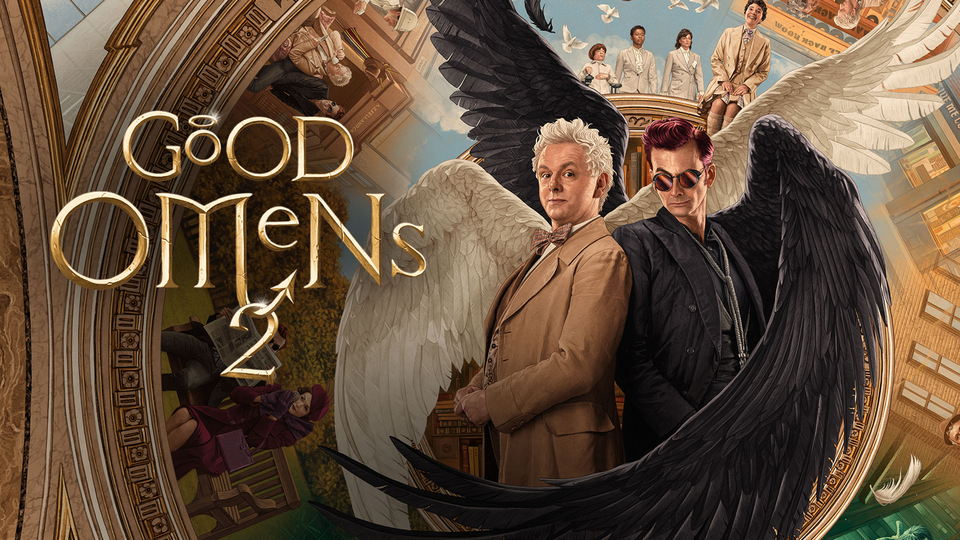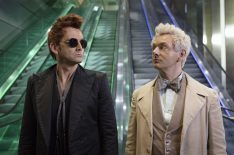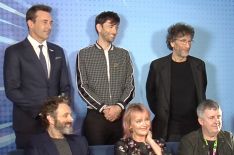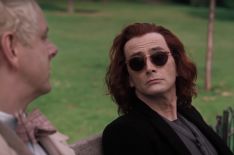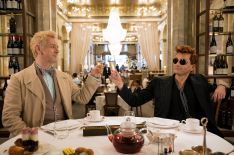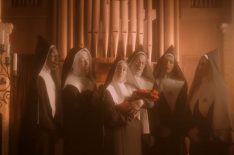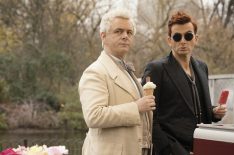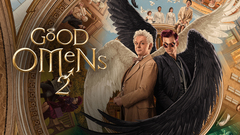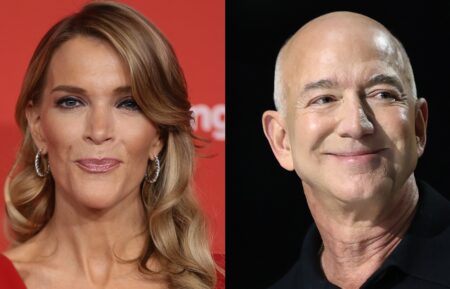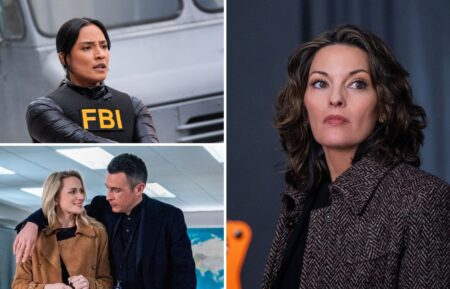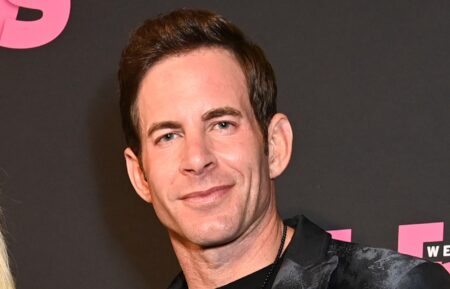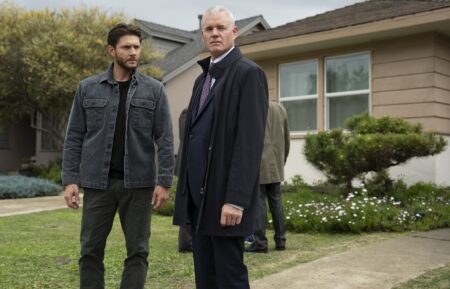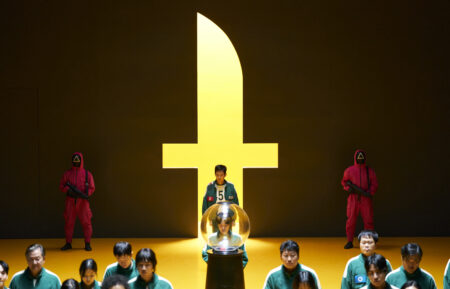‘Good Omens’: Neil Gaiman Talks the Challenges of the Book-to-Series Adaptation
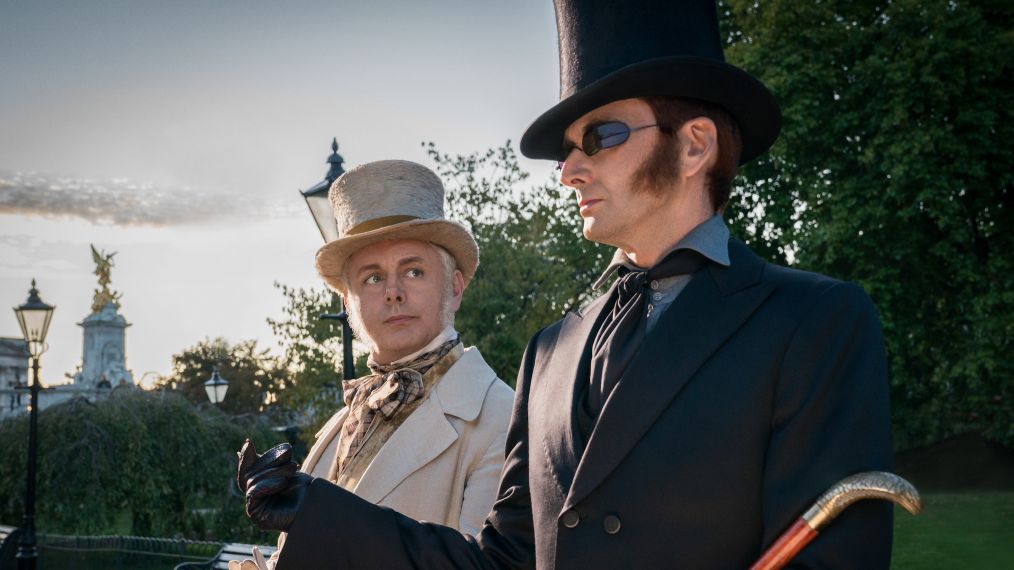
Q&A
The End of the World. The Apocalypse. The End Times. The Final Battle. However you say it, that is what is about to go down when Neil Gaiman’s Good Omens kicks off on May 31 on Prime Video.
The fantasy series is an adaptation of the 1990 novel Gaiman wrote alongside late writer Terry Pratchett, featuring the unwieldy title, Good Omens: The Nice and Accurate Prophecies of Agnes Nutter, Witch. The series stars Michael Sheen (Masters of Sex) as fussy, book-loving angel Aziraphale and David Tennant (Doctor Who, Marvel’s Jessica Jones) as sly demon Crowley.
Here, Gaiman, who serves as the creator and sole writer of all six episodes, discusses adapting his work for the small (streaming) screen.
How would you, as you’ve likely done many times before, describe Good Omens?
Neil Gaiman: Well, Good Omens, is about an apocalypse. It’s the story of an angel and a demon who have been on Earth now for the last 6,000 years, and they’ve gotten to this point—they got to this point probably several thousands of years ago—where they have more in common with each other than they do with either of their respective head offices. And they like it here. They like Earth.
So, they start working together to prevent the apocalypse, and they are aided in this occasionally unwittingly by a witch, the prophecies of a very long-dead witch, named Agnes Nutter. Things are also all being slightly complicated by the existence of an 11-year-old antichrist, who is lost. He was meant to have been raised as the child of a diplomat and inculcated in evil, but he got mislaid and he’s grown up in a little English village as a very, very normal kid, and now he’s coming into his own and things are going to get scary.
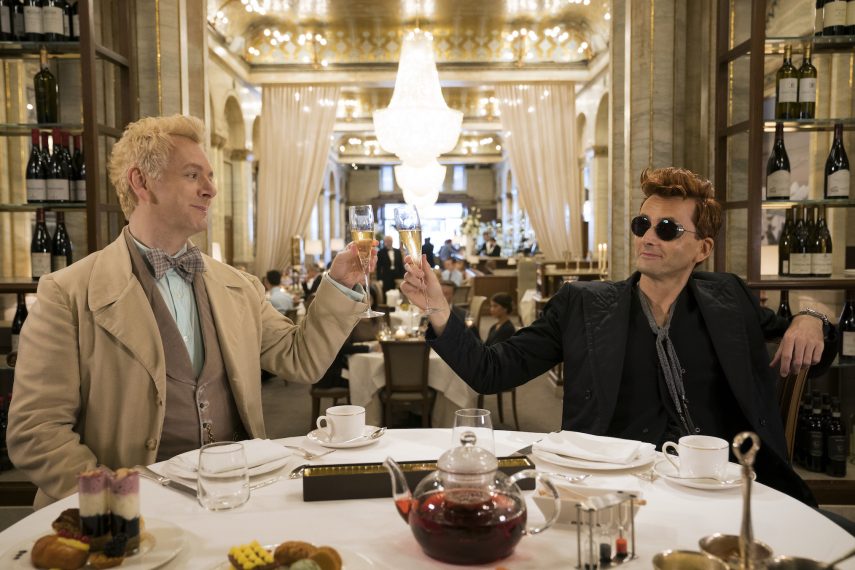
(Chris Raphael/Amazon)
What was the biggest challenge that you found when adapting the novel for TV?
The thing that I was certain of from the beginning was that if I could find a Crowley and an Aziraphale who worked and had that magical chemistry, then I could get everything else to work. It seemed to me like they were the heart and soul of the thing. I’ve known Michael Sheen for almost a decade now. And I’d actually sent Michael some early scripts of Good Omens to have him read.
As I was writing, I started realizing that he really wouldn’t be a terribly good Crowley, which is what I’d thought of originally, but he’d be a magical Aziraphale. And the moment I’d thought of Michael as Aziraphale, I took him out to dinner. I watched him—he was trying to drop hints that he didn’t think he was going to be a very good Crowley—and I wound up having to say to him, ‘Well, I’m not asking you to be Crowley. I want you to be Aziraphale. Would you do that?’ And he was like, ‘Yes, of course!’
Then it was just the challenge of finding a Crowley. While I’d been writing the script, in the middle of Episode 3, there’s this sequence in the first half where we get this flashback, and it’s probably the longest pre-credits sequence in human history, as we cover 6,000 years. There’s a section of that in which you see Crowley having to enter a church to rescue Arizaphale. He’s coming down the aisle, and because he’s a demon, he’s moving like someone going to a beach on a very, very hot day, going ‘Ow, ow, ow.’ While I was writing that scene, I remember thinking, ‘I need somebody for this like David Tennant, because I need someone who can actually pull off the physical comedy while delivering the lines.’ And the idea of David Tennant then entered my head and would not leave.
I had to persuade a lot of people that I wanted David, and the reaction was completely understandable because they wanted someone different to Michael. And they would go, ‘But, David’s the same kind of actor.’ Interestingly, David and Michael, it turned out, had never actually ever acted together before because they always go up for the same roles. It was a moment where I actually got to go, ‘Well, actually, it’s the similarity between them that I’m really looking forward to here.’ It was glorious. Even [Michael and David] started saying if we ever adapted Good Omens for the theater, they would like to do it swapping roles each night, going backward and forwards between being Crowley and Aziraphale.
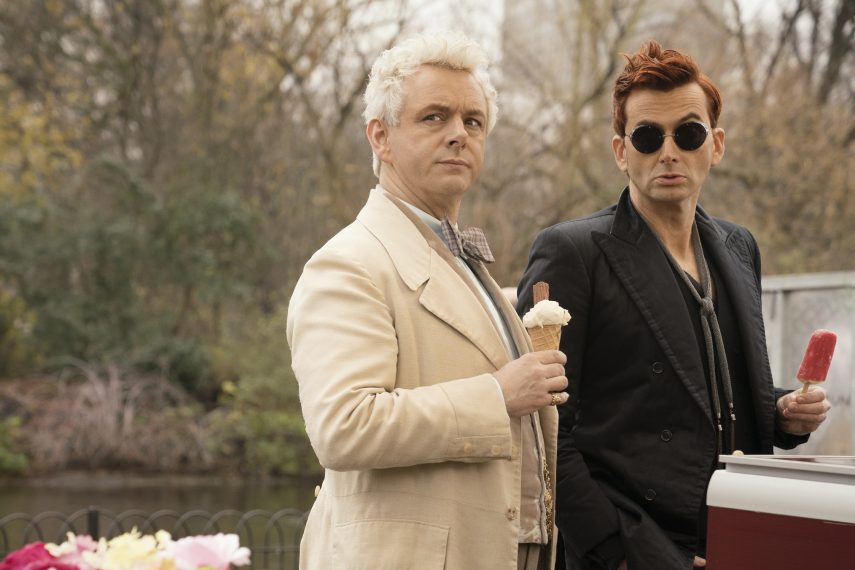
That would be amazing. And sell out constantly, because people would have to go and see it twice to get the full experience.
That would be the point.
So, with this extremely rich tapestry and the world that you and Terry Pratchett built together, I feel like your props department really had their work cut out for them. Between the bookshop, getting Crowley’s Bentley—there’s so much that’s vital. Was there anything that posed to be particularly difficult when putting all these pieces together?
Yes. But that was the fun of it. We had the most amazing props department and art department. One of the oddest things was in Hell. I wrote a number of de-motivational posters for the walls of Hell. And the art department couldn’t get them ugly enough. Eventually, the production designer, the amazing Michael Ralph did possibly the most sensible thing that he could have ever done, which was to ask the youngest art department intern to do them and tell him that we encourage the use of lots of different fonts, and Comic Sans wherever possible. And we got these very badly designed posters, and they were exactly what we wanted. De-motivational posters with messages on them like, ‘Don’t lick the walls.’ And, ‘Clean up after yourself. Your mother doesn’t work here. You don’t have a mother.’
Oh my god, that’s fantastic.
You know, we also had to find two Bentleys. We not only had the Bently that is driven, but we needed a Bentley that we could light on fire and actually take apart. When we were filming in the studio with the Bentley, it was actually a real Bentley. But it is very difficult to blow-up an ancient Bentley and set it on fire and stuff and make it absolutely convincing. People were like, ‘How are you going to do that with CG?’ Some of it we did with CG, but some of it we did with practical effects.
Were you itching to make changes after all of these years, or did you want to keep everything mostly intact?
The funny thing is, most of the changes that I made were things that Terry [Pratchett] and I talked about over 30 years. So you know, we’ve been talking about [adding in] angels since 1990, maybe 1991, realizing that we didn’t really have any in the story. So, to balance things up, we needed angels. We talked, Terry and I, over the years, how much we wanted to visit Heaven and Hell, which we don’t do in the book.
Terry had Alzheimer’s, and I was promising I would make it to him before the Alzheimer’s took away his ability to follow what was going on. But as it was, I didn’t really finish it. He died very, very unexpectedly and quickly after I had promised to him that I would make it. So, my agenda was always, make the thing that Terry would like, make the thing that we talked about. Having said that, I love the new additions. I love the angels. I think Terry would have too, because we had talked about them enough and Jon Hamm as Gabriel is just perfect.
Yes, it really is.
There’s something about him. On the one hand, you go, ‘Everybody’s going to adore him.’ And then, on the other hand, you kind of want to punch him in the face. Jon Hamm is such an underrated comedic actor. He’s rated as an actor, but I think people forget how incredibly funny he is.
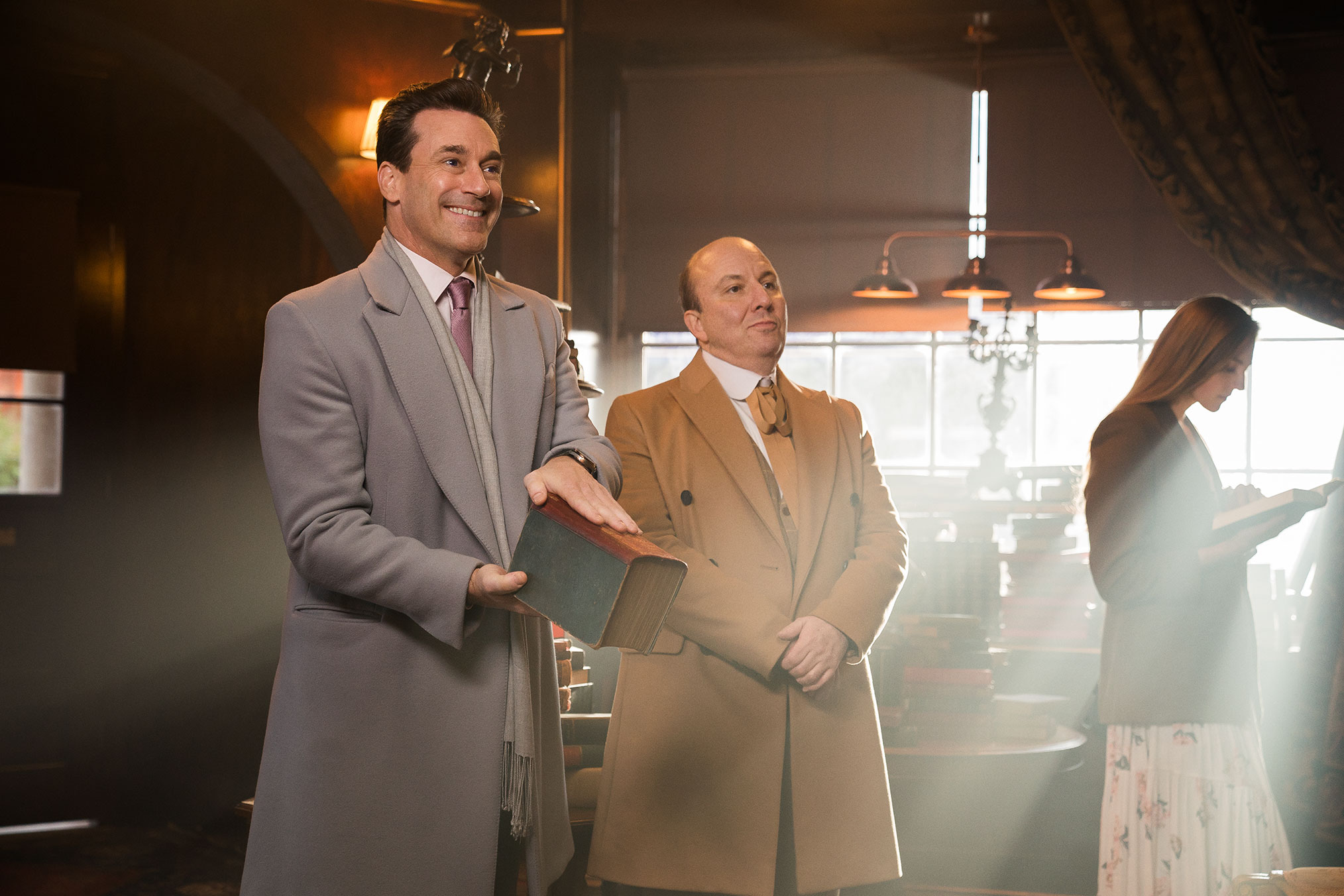
Good Omens
You did a Twitter #AskNeilGaiman, and you mentioned that you appear in Good Omens as a sleeping drunk, the voices of three rabbits and an animated frog. Why did you choose those appearances?
Mostly because I didn’t want to do a Hitchcock. It’s a slightly sad story. Terry and I had talked for years about how we wanted to have our guest role in Good Omens. This was long before I had ever written a script. We had decided that there was going to be a scene in the sushi restaurant and we were going to be sitting there eating sushi in front of the camera. And that was our plan. That was our cameo. We were going to be sitting there eating sushi in the sushi restaurant. So, I wrote the sushi scene [that was] in the book, even though Terry was dead, like, ‘Well I always said I’d write the sushi scene, here it is. Maybe I’ll be an extra in the sushi scene anyway, without Terry.’ And when the night came that we were going to shoot that, I was just really sad. And I missed Terry. I didn’t want to be in it alone.
When we were almost, almost, almost done, I think we had maybe two days to go in South Africa, [director] Douglas Mackinnon was asking me what we needed in the scene in the cinema. And I said, ‘Well, really, just Crowley, but we should probably have a couple making out and an unconscious drunk in the front row.’ And a smile spread over Douglas’ face and he said, ‘There is your cameo.’
So, I wound up getting made up as an unconscious drunk, which I have to say was very easy. I just sort of dozed. And then when we finished that scene, when the animation came back with these little dancing rabbits. I was talking to Douglas saying, ‘We need to find someone to do the bunny voices. Because I don’t want them actually saying words, I want lots of little noises like, whoooop whomp, when one of them gets killed.’ And he’s like, ‘Here you go, Neil. You can do the bunnies.’ So, suddenly, I found myself part of that sequence doing the bunnies and an animated frog. I am all of the voices as the various bunnies are murdered and things happen to them.
You’ve taken on a smaller role in the adaptation for American Gods, but what are the major differences you’ve noticed between shooting that and Good Omens?
I’ve never really been there for shooting American Gods, really, because I was doing Good Omens. On the last season, I was there while they were shooting at The House on the Rock because I wasn’t going to miss seeing The House on the Rock. And I was there in Season 1 for the first meeting of Shadow [Ricky Whittle] and Wednesday [Ian McShane]. So, I seem to get in there for the absolutely iconic moments of American Gods. The problem with being in England making Good Omens, while American Gods was being put together in Los Angeles and Toronto, is that I’m not there.
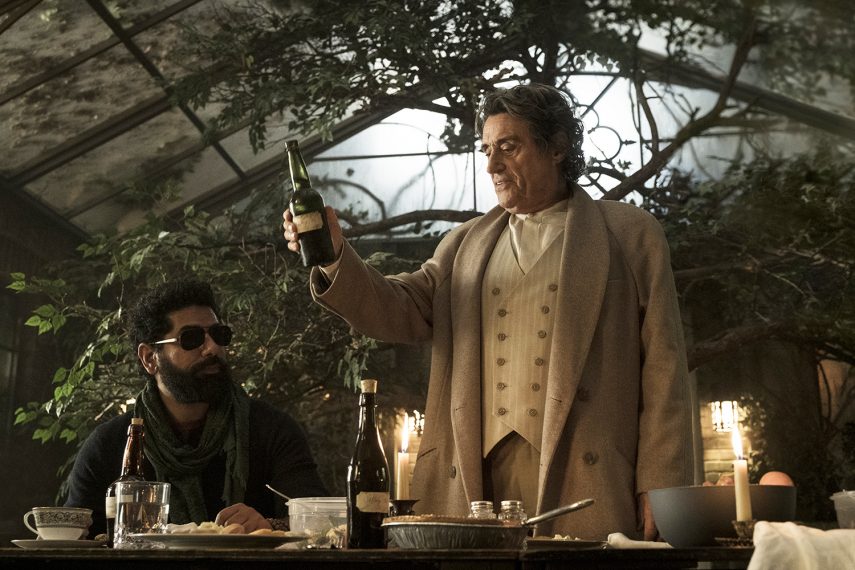
Ian McShane on American Gods (STARZ)
But I guess the biggest difference for me if you’re looking at the two of them, is American Gods, is for all its incredible weirdness, is fundamentally a straightforward American show being made like straightforward American shows. It has a writers room; it has lots of directors coming in; it’s being made in Toronto and so on and so forth.
Good Omens was not really made like that. I was the showrunner, but I was also the only writer. We only had one director, even though its six episodes long. Douglas shot something essentially twice the length of a normal movie. And then we had 11 months of post-production with Douglas and I sitting on various sofas and seats, first in editing rooms, then in the FX room, signing off on and approving the graphics, just watching it over and over again. Basically, we wound up with this enormous production which is in a lot of ways very personal and handmade. Douglas and I made it by hand and worked directly with all the heads of the departments and mostly we encouraged them along with—what we would say to them is, ‘You’re probably at a point in your career where there are ideas that you have that you go, ‘This is actually a bit too mad to mention to people.’ Those are the ideas we want.’ We want the stuff that’s just too barking mad, and then let’s work with it. We got things out of that that I don’t think we ever would’ve seen.
Are you itching to bring any of your other stories to TV now?
There’s some existing work that I’d really like to bring to TV and then there’s also some original things. There was a period back in the late 1990s where I was asked to put together a TV series, and I put one together and was told it was too weird, so I tried another and I was told that was too weird also. I took the rights back rather than the money and they’ve been just sort of sitting there, two completely realized TV series, that were probably, quite frankly, too weird for 1998. And probably would’ve been impossible to make in 1998. But I look at those and think they’d both be terrific now.
So, I love the idea of making some new stuff, but then also looking at what existing stuff would actually work best on television, obviously people now are sort of pointing at Sandman a lot. For years, people have tried and failed to make Sandman movies, normally because you’re trying to take the equivalent of about 85 issues of story and squeeze them into 120 minutes. So, a lot of people are looking around and going ‘Ah, you don’t have to do that anymore.’ With any luck, I would love to see that happen.
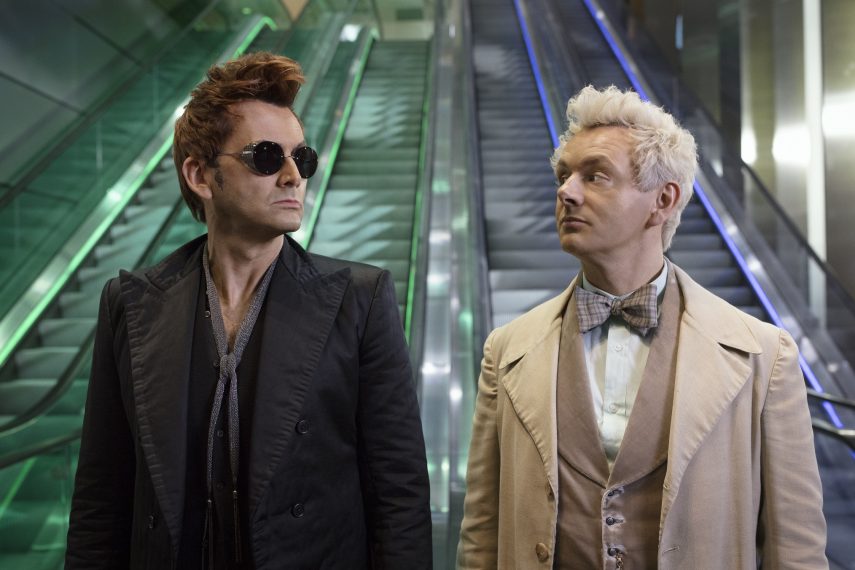
(Amazon Prime Video)
For fans coming into this world for the very first time, without having read the book, what are three things that you can tease that they can expect to see?
Well, you can expect a fine, classical education that will take you through 6,000 years of human history from the Garden of Eden through to Carnaby Street in the Swingin ’60s, by way of King Arthur’s Britain, and you’ll meet people like Shakespeare along the way. You will actually get to encounter the sunken city of Atlantis after it rises beneath a cruise ship and what happens when the people come on board. And, you will get to see what happens when the demon Crowley imagines that his car is not on fire. On the way, you will watch an angel and a demon and you’ll go to the only actual seance in human history in which anything actually happens.
It is this weird oxymoron where on the one hand this is the biggest thing the BBC has made to date, pre-Lord of the Rings, and it is this incredibly personal thing. I hope you’ll like it.
Good Omens, Series Premiere, Friday, May 31 on Prime Video.
From TV Guide Magazine
How 'Countdown' Recruited Jensen Ackles to Go Full 'Die Hard'
Countdown boss Derek Haas talks creating the character around Ackles, and the cast teases the “Avengers”-like team of the crime thriller. Read the story now on TV Insider.

